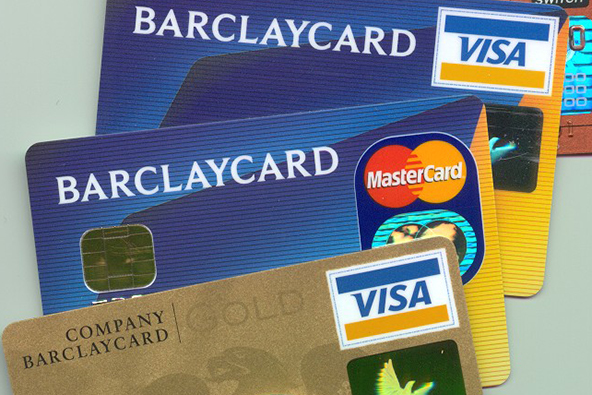Shooting Yourself in the Foot and the Limits of the Size Advantage

A couple of months ago I wrote about my issues with building a payment processing solution for an international telemarketing merchant of a fairly large size. What was supposed to be a quite straightforward affair ended up taking a couple of months and an incredible amount of effort to bring to a (somewhat) successful conclusion. Eventually I gave the merchant what he needed, but the terms were not nearly as favorable as what a business of that size would typically secure.
I’ve also already written about the reasons why the merchant got the terms he did and you can read my post on the subject. But I still can’t quite get over this whole thing and thought there was more to be said about it. The thing is that I don’t consider this particular case a success. It’s not a failure, as the applicant got his merchant account and we signed up a business of a good size, but I never enjoy getting a new merchant to agree to terms, which in normal circumstances would have been considered unacceptable. The reason I feel that way is that inevitably the merchant ends up feeling cheated and unhappy, even though it may have been his own actions that got him in a bind in the first place, as was the case with my telemarketer. He knows very well what terms others in his position would get and no amount of reasoning can make him feel better about his situation. The upshot is that he would be constantly on a lookout for an opportunity to find the terms his counterparts get at other processors. Of course, I would amend the terms in his favor as soon as that becomes a possibility, but there is no guarantee that I would be able to do it quickly enough.
But back to the merchant. For the time being he would be paying several percentage points more than he would have been paying had he not shot himself in the foot by rejecting an incredibly generous first proposal and inviting closer scrutiny, which raised questions, some of which are still unanswered. You would be well advised to take note of his errors and devise a different plan of action.
What the Merchant Had in His Favor
Let’s begin our analysis by examining what worked, or at least appeared to do so, in the merchant’s favor. The first thing I noticed, after our initial email exchange and the first phone call, was that the merchant had payment processing experience, a lot of it. He was intimately familiar with the intricacies of obtaining and maintaining a high-risk offshore merchant account and was unusually realistic in his expectations. That was a very promising sign, but it kept getting better. The merchant was always picking up his phone and was incredibly punctual in replying to my emails, quickly providing all of the paperwork I requested of him. It’s always a pleasure to work with such merchants.
But the best thing the telemarketer had going for him was the combined size of the three businesses he was applying for — about $3 million in monthly sales revenue and growing quickly. There is nothing like a combination of a high existing volume and high growth rate to peak a payment processor’s interest, to say nothing of our acquirers’. Moreover, the applicant’s existing merchant accounts were still active — they weren’t terminated by their two current processors, but were looking for new solutions to handle the additional volume that was coming from the two new call centers they had just added to their existing capacity. The merchant told me that he wanted to place the new volume with at least two new acquirers so as to spread the risk — if something unexpected happened with one acquirer (and in our industry unexpected things do happen all the time), he would still have a couple of other acquirers to pick up the slack. It made perfect sense.
So, as I keep saying, the merchant had everything going for him and I was confidently expecting to have the whole thing wrapped up and his three accounts fully set-up and functional within a week or so. Well, my plan would have succeeded, had the merchant not committed a strategic error.
How to Avoid Shooting Yourself in the Foot
So I made my proposal six days after we initiated the application process — a very generous proposal, whose terms I knew would have pleased the merchant, even if I didn’t expect that he would admit it. Much to my surprise, however, rather than haggle over the discount rate, reserve requirement or something else, which I expected the merchant to do, he rejected the proposal outright, because he didn’t like the acquiring bank, although I assured him it was a solid one. Now, it is perfectly acceptable to do that and ask for a different acquirer, but, as I explained in my initial post on the subject, in the high-risk credit card processing world such a decision is an invitation for trouble. The thing is that there is no business operating in the high-risk space with nothing to worry about. You can be squeaky clean and still get in a pickle for no fault of your own. Unsurprisingly, it turned out that my telemarketer was no different, as I’ve already documented.
And here is a question for you — why did a merchant with plenty of experience and a lot to lose choose to play such a dangerous game? Surely, he must have known that, once people started digging into his business history, bad things were bound to happen, even in the best of scenarios. It’s inevitable, it’s like taking a 10-year-old car to a mechanic for a check-up. Moreover, it surely looked as if he must have known that there were things that would raise difficult questions. I, for one, don’t have an answer, but I do have a recommendation for future high-risk merchant account applicants — if you get a really good proposal, accept it and move on. If you decide later on that your acquirer is not quite up to standard, you can look for better alternatives then. Crucially, however, that first acquirer would have helped you build processing history, which is your most important asset when your subsequent applications are reviewed.
The Takeaway
The whole ordeal lasted for about a couple of months and throughout the process I was completely straightforward with the merchant — he knew exactly what was going on at any given time. While the merchant wasn’t exactly happy that a second proposal was slow to materialize, he understood the seriousness of the situation and did his best to supply every document and answer every question that came his way. Moreover, he did recognize and acknowledge his error and, within two weeks of rejecting my initial proposal, he asked whether it was still on the table. In the event it wasn’t and he will be paying dearly for his decision in the coming months.
My telemarketer may have had the excuse of not being fully aware of the consequences of his decision, although he should have been. He probably thought that his size would trump any potential blemishes that could come to light, but he was wrong. I can guarantee that next time around he would be very careful indeed before rejecting a truly good proposal. And so should you.
Image credit: HD.org.


